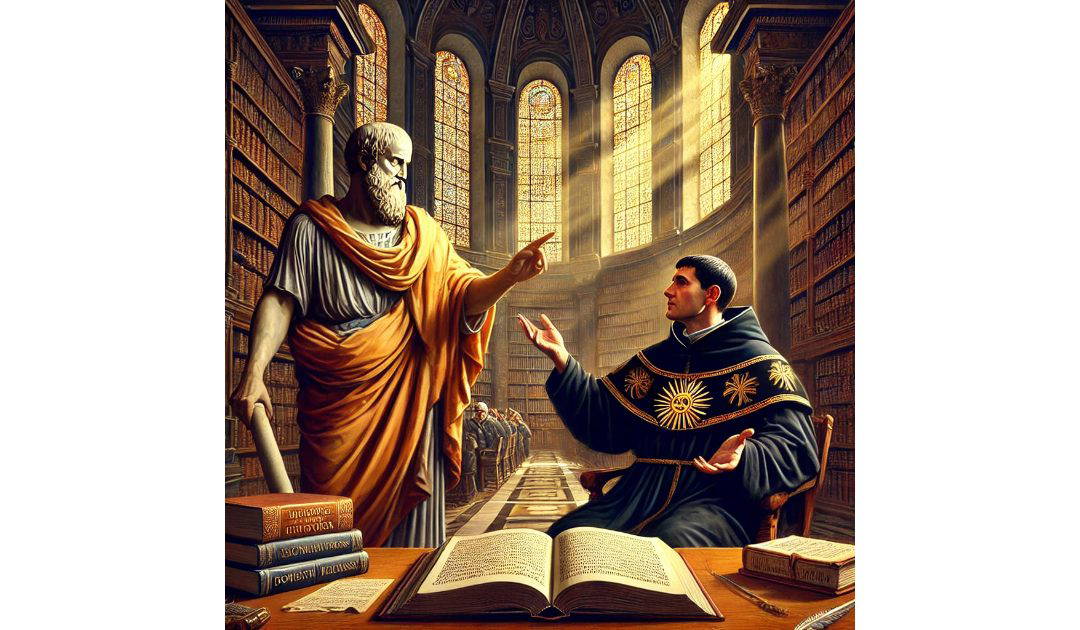Thomas Aquinas’s divine vision refers to a mystical experience he reportedly had near the end of his life, which profoundly influenced his perspective on his theological work. This event occurred on 6th December 1273, while he was celebrating Mass in a chapel. During this moment, Aquinas experienced what he described as a direct encounter with God—a vision of such overwhelming intensity that it transformed his understanding and priorities.
There is an interview in Fire and Earth, the second book of the Sir Anthony Standen Adventures, with Cardinal Robert Bellarmine who describes himself as a Thomist, that he followed the philosophy of Thomas Aquinas. Aquinas was mentored by Albertus Magnus (c. 1200–1280), also known as Saint Albert the Great, was a German Dominican friar, philosopher, theologian, and scientist. Renowned for his encyclopedic knowledge, he was a key figure in medieval scholarship and is considered one of the most important precursors to modern science. He is known for integrating Aristotelian philosophy with Christian theology.
The essence of Aristotle’s philosophy lies in his systematic approach to understanding reality, which combines empirical observation with rational analysis. His work spans a vast range of subjects, including metaphysics, ethics, politics, logic, biology, and aesthetics. At its core, Aristotle’s philosophy seeks to uncover the principles and causes underlying all aspects of existence, guided by the belief that human reason can discern universal truths about the world.
The essence of Aristotle’s philosophy lies in his systematic approach to understanding reality, which combines empirical observation with rational analysis. His work spans a vast range of subjects, including metaphysics, ethics, politics, logic, biology, and aesthetics. At its core, Aristotle’s philosophy seeks to uncover the principles and causes underlying all aspects of existence, guided by the belief that human reason can discern universal truths about the world.
Aristotle’s metaphysics is centered on the concept of substance (what things are) and form (the essence or defining nature of a thing). Unlike Plato, who emphasized abstract forms existing independently of the physical world, Aristotle argued that form and matter are inseparable in individual objects. Aristotle believed that knowledge begins with sensory perception and observation of the natural world. From these observations, the intellect abstracts universal principles. Aristotle’s ethical philosophy focuses on the cultivation of virtue (excellence of character) as the path to eudaimonia (flourishing or the good life). He argued that virtue lies in the “golden mean”—the balanced point between deficiency and excess. He emphasized phronesis (practical wisdom) as essential for ethical decision-making, guiding individuals to act virtuously in varying circumstances. Aristotle also argued that humans are naturally social beings who achieve their fullest potential within a community. He analyzed various forms of government, advocating for a mixed constitution that balances elements of monarchy, aristocracy, and democracy. Aristotle emphasized justice as the foundation of political life and the importance of laws that promote the common good.
I can’t help feeling that Aquinas didn’t really add much to Aristotle’s philosophy. More a case of hanging from the neck of a giant, than standing on his shoulders.

